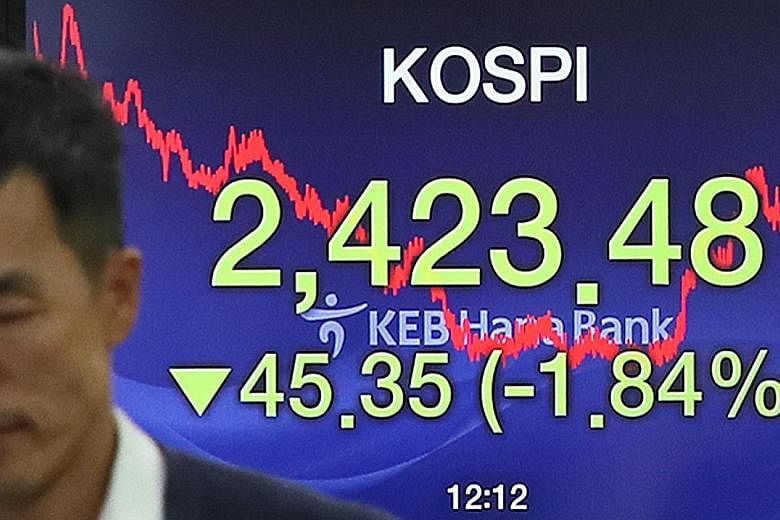Local borrowers - corporate and home buyers - have had it easy for years but some straight talk from America's top banker has signalled that the good times are ending.
The message came in the form of another interest rate rise in the United States, bringing the benchmark rate to 1.75 to 2 per cent, its highest since the dark days of 2008.
That was expected; the blunt comments from Federal Reserve chairman Jerome Powell were not.
Mr Powell noted on Wednesday that the US economy had strengthened significantly since the 2008 global financial crisis and was nearing a "normal" level.
"Most people who want to find jobs are finding them, and unemployment and inflation are low," he added.
He also strongly hinted that there will be two more rate hikes this year, not one more as had been widely expected.
This has major consequences for Singapore given how closely rates here align with those in the US.
Higher US rates mean higher rates in Singapore on mortgages, credit cards and corporate loans - and bank accounts, which will be a boon to savers.
The three-month Sibor, or Singapore interbank offered rate, used to price home loans remained almost flat at 1.52038 per cent following the Fed rate hike announcement but it is still at its highest since 2008 during the global financial crisis.
"It's a double-edged sword (for Singapore)," said Maybank Kim Eng economist Chua Hak Bin.
"The (US) hikes come on the back of stronger growth, which is positive. But as a result Singapore's short-term interest rates are going to climb, which could impact property market sentiment as well as companies that are highly-geared."
However, Dr Chua said, the impact of higher rates here is likely to be limited for now: "Rates are still relatively low and not likely to bite that much. When the Fed funds rate approaches 3 per cent in late-2019, Singaporeans might feel it a bit more."
There is another concern as well: higher US rates attract funds looking for a better return, which could spark big capital outflows from emerging markets in the region.
That in turn could put pressure on Asian currencies and asset markets as occurred in 2013, when the US Fed said it would ease up pumping money into the financial system via aggressive bond purchases.
Many investors pulled money out of Asian economies, resulting in what has been called the "taper tantrum". Asian currencies then weakened against the greenback.
Those factors and concerns were clearly in play across financial markets yesterday.
South Korea's Kospi tumbled 1.8 per cent, followed by Taiwan's Taiex, which slipped 1.4 per cent. Benchmark indices in Singapore and Japan lost 1 per cent while China, Hong Kong, Australia and Malaysia also declined but by a lesser degree.
Most Asian currencies edged lower against a volatile greenback. The Singapore dollar eased 0.04 per cent while the South Korean won was the top loser in Asia, shedding about 0.5 per cent.
Safe-haven assets such as gold and the yen advanced.
Societe Generale said in a note: "Cheap money has fuelled a rise in global debt levels and a fall in the cost of funding for many economies, both developed and emerging, in recent years.
"Weaning the global economy off that cheap funding, without causing undue market turmoil, will be a delicate process that probably sees some currencies fall sharply."

